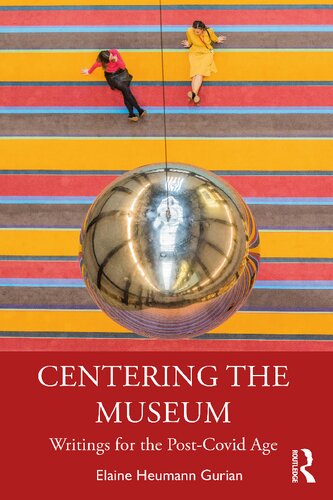

Most ebook files are in PDF format, so you can easily read them using various software such as Foxit Reader or directly on the Google Chrome browser.
Some ebook files are released by publishers in other formats such as .awz, .mobi, .epub, .fb2, etc. You may need to install specific software to read these formats on mobile/PC, such as Calibre.
Please read the tutorial at this link: https://ebookbell.com/faq
We offer FREE conversion to the popular formats you request; however, this may take some time. Therefore, right after payment, please email us, and we will try to provide the service as quickly as possible.
For some exceptional file formats or broken links (if any), please refrain from opening any disputes. Instead, email us first, and we will try to assist within a maximum of 6 hours.
EbookBell Team

0.0
0 reviewsDrawing on Elaine Heumann Gurian’s fifty years of museum experience, Centering the Museum calls on the profession to help visitors experience their shared humanity and find social uses for public buildings, in order to make museums more central and useful to everyone in difficult times.
Following the same format as Civilizing the Museum, this new volume includes material written especially for a re-emergent time and relevant public lectures not included in the author’s previous book. Divided into six separate content clusters, with over twenty different essays, the book identifies many small, subtle ways museums can become welcoming to more―and to all. Drawing on her extensive experience as a deputy director, senior advisor to high-profile government museums, lecturer and teacher around the world, the author provides recommendations for inclusive actions by intertwining sociological thinking with practical decision-making strategies. Writing reflectively, Elaine also provides heritage students and professionals with insights that will help move their careers and organizations into more equitable, yet successful, terrain.
Centering the Museum will be an excellent companion volume to Civilizing the Museum and, as such, will be a useful support for emerging museum leaders. It will be especially interesting to academics and students engaged in the study of cultural administration, as well as museum and heritage practitioners working around the world.